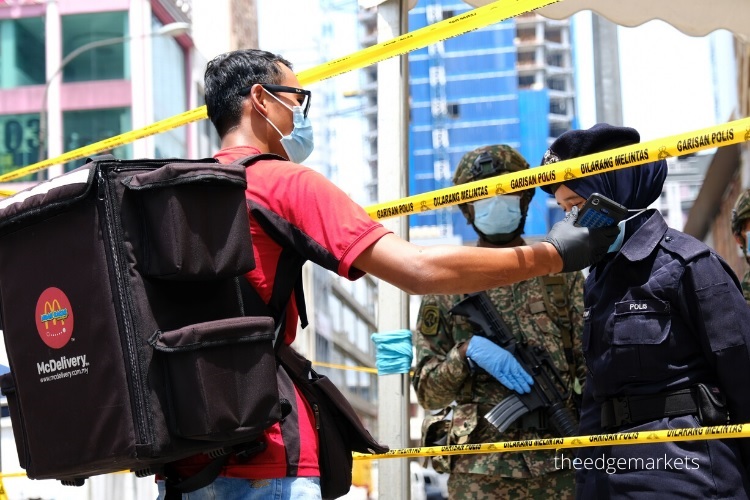
The Covid-19 pandemic is inflicting unprecedented damage on the health and economic well-being of many countries, from the powerful to the weak. It is highly infectious and does not discriminate against anyone, as Boris Johnson, Prince Charles and a few of our corporate leaders have found out.
After a spike in the number of infections and deaths, the government imposed a lockdown on March 18 that stopped all social and most economic activities. This is the strategy of flattening the curve (slow the growth in the rise of cases) to prevent our healthcare system from collapsing.
This is necessary as no health system in the world is designed to tackle a pandemic of this scale, as we can see from what has happened in Italy, Spain and France, whose healthcare had been touted as very good.
There are early signs that the Movement Control Order (MCO), as it is called, is working. But health authorities warn that although we may not have lost the war, we have not won it yet. Saving the lives of the infected and preventing others from being infected is of utmost importance.
It was, therefore, no surprise that after a one-month lockdown, the government has extended the MCO by another two weeks to April 28. The start of the fasting month of Ramadan on April 24 must have weighed heavily on that decision. Some doctors believe the MCO must continue until after Hari Raya Aidil Fitri, which is expected to fall on May 25 or 26.
Savings lives is paramount and until this virus is arrested and a vaccine found, lives will not revert to normalcy because of fear. But a vaccine is likely to be many months away.
Can we honestly believe that the country can afford even a partial lockdown of business for 12 months? Can the government extend its three-month wage subsidy to 12 or even 6 months? As it is, the scheme does not even cover more than 10% of businesses that have suffered because of the MCO.
It is a fact that a prolonged shutdown of economic activity is not an option because the financial cost of that could be thousands of businesses going under and millions without work — meaning without income.
The cure could be worse than the illness.
Governments do have a moral dilemma — lives or livelihoods?
But it does not have to be that way if we take a dual-track approach that strikes a balance between health and economics.
Where the cases of Covid-19 are prevalent, for example, in the red zones, there must be a strong lockdown and enforcement.
But in less seriously affected areas, businesses and industries should be allowed to operate, albeit with conditions. And this should not be confined to essential services. Let others open as well.
Things will not return to what they used to be in the past. The way we work and socialise will be different. We, both businesses and customers, need to begin adjusting and let us allow the quick learners in green zones to start first.
Allow businesses to operate with strict guidelines on how many people can be on the premises. For instance, a restaurant that had 30 tables will now have 15 so that customers are not too close to each other. And all its staff will have to wear masks and gloves. So, restaurants will have to rework their operating models.
Construction sites in green or non-red zones should also be allowed to resume work but with strict standard operating procedures (SOP), for example, regularly monitoring the health of the workers on the site to ensure that any case of the virus is immediately handled.
People in the green zones should also be allowed to exercise alone in open areas with proper physical distancing.
If the pandemic is not stopped, many more will die. If in attempting to stop the pandemic, severe damage is inflicted on businesses and, therefore, the livelihoods of people, the suffering will be deep.
We must tackle both issues by taking a dual-track approach so that it does not have to be a choice between lives and livelihoods.





